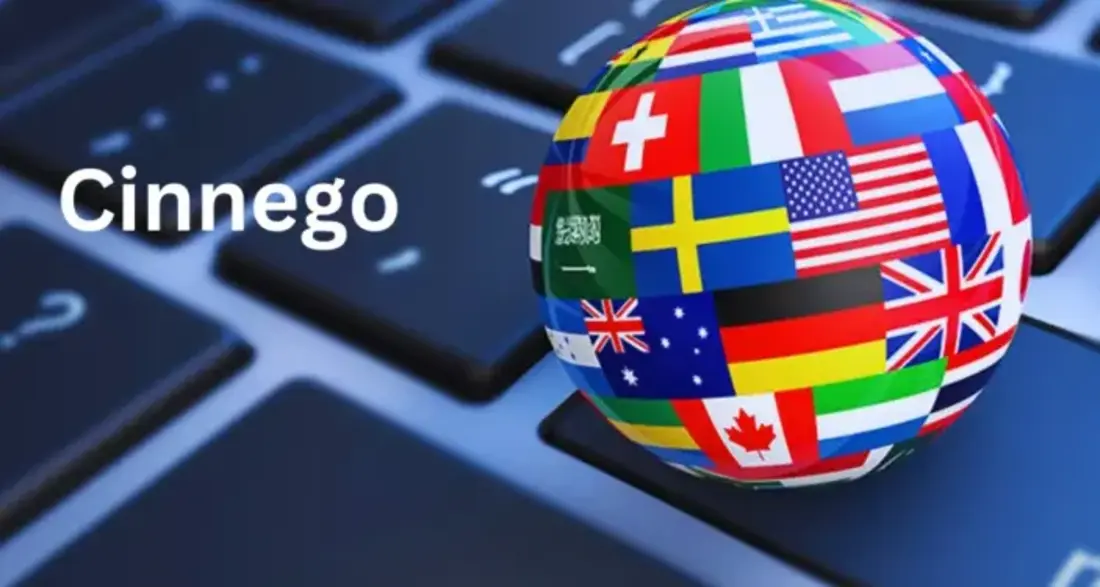The English language, with its vast lexicon and rich history, continuously evolves and adapts, embracing new words, expressions, and phrases over time. Among the many terms that may spark curiosity, “Cinnego” is one that stands out for its uniqueness and unfamiliarity. While “Cinnego” may not be a widely recognized word in conventional English dictionaries, its intriguing structure and potential meanings offer an interesting journey into language development, etymology, and even creativity in the modern use of words. In this article, we will explore the origins, possible interpretations, and relevance of “Cinnego” in the English language.
What is “Cinnego”?
Before delving into the linguistic exploration of the term, let’s first take a moment to understand what “Cinnego” may imply or represent. As a word that does not appear in most traditional English dictionaries, “Cinnego” likely falls into the category of neologisms, invented terms, or even niche slang. It could also be a term from a specific regional dialect or a coinage with roots in other languages.
While the origin of “Cinnego” is unclear, it could potentially derive from a combination of Latin, Greek, or perhaps even other languages. Its phonetic structure seems to share similarities with certain terms found in Romance languages, particularly Italian or Spanish. There is also a possibility that “Cinnego” could be a creation by contemporary authors, artists, or online communities who frequently invent new terms for various cultural or creative purposes.
Linguistic Structure and Phonetics of “Cinnego”
To understand the structure of “Cinnego,” it is helpful to analyze its phonetics and possible linguistic components. The word is composed of three syllables: “Cin,” “ne,” and “go.” Let’s break this down:
- Cin: This syllable could be reminiscent of the Latin prefix “cin,” which means “five.” It could also be linked to the English word “cinerous,” which refers to something resembling ashes, possibly relating to the color gray or muted tones.
- Ne: This syllable might echo various linguistic patterns, like the diminutive forms found in certain languages or even the common English suffixes like “-ness” or “-ness.”
- Go: The final syllable “go” could imply movement or progression, as it appears in words like “governance” or “going.” It may convey a sense of activity or change.
Although there is no definitive etymology for “Cinnego,” the structure hints at a word that could have evolved organically within a specific linguistic or cultural context. The combination of phonetic components creates an impression of balance and flow, with both hard and soft sounds working in harmony.
Potential Meanings of “Cinnego”
While the exact meaning of “Cinnego” remains unclear, it’s possible to explore some potential interpretations based on the way the word is structured and its phonetic elements.
1. A Name or Brand
One of the most straightforward possibilities is that “Cinnego” could function as a name, either for a person, place, or brand. As with many modern invented terms, “Cinnego” could serve as a catchy or distinctive brand name for a company, product, or service. The word’s sound is memorable and unique, which is often a desirable quality in branding. It could potentially represent a tech company, a fashion line, or even a fictional character in a novel or film.
2. A Concept or Philosophy
Given the ambiguity of the word, “Cinnego” might also represent a conceptual term. It could be a term used to describe a specific philosophy, artistic movement, or mindset. The structure of the word—smooth yet strong—might lend itself well to describing something dynamic, such as an emerging ideology or a particular aesthetic trend in contemporary culture. It could even be a shorthand for an idea related to personal growth or creative expression.

3. A Linguistic Evolution
In the context of modern English, “Cinnego” might also reflect the natural evolution of language and how new words emerge. In this case, it could be used as a placeholder term to describe something yet unnamed or undefined. Language enthusiasts, writers, or online communities often coin new words to represent ideas, actions, or emotions that lack concise definitions in existing vocabulary.
4. A Regional or Cultural Term
In some cases, “Cinnego” could be a regional term or slang used within a specific community or group. Different cultures or subcultures develop their own expressions and lexicons that may not be widely recognized outside of their context. “Cinnego” could represent something particular to a certain geographic area, profession, or hobby.
How New Words Shape the English Language
The creation and integration of new words into the English language is an ongoing process that happens in response to cultural, technological, and social changes. The rise of internet culture, the globalization of communication, and the increased cross-pollination of languages and dialects have accelerated the development of new vocabulary.
The Role of Technology and Social Media
In recent years, the rise of social media and online platforms has been instrumental in the creation of new slang, terms, and expressions. Words like “selfie,” “hashtag,” and “influencer” have quickly entered the mainstream lexicon, thanks to their widespread use across social media platforms. “Cinnego,” if it were to emerge as a new term, could follow a similar trajectory: initially used by niche groups before gaining wider recognition.
The Impact of Pop Culture and Entertainment
In addition to the internet, pop culture plays a significant role in the development of new language. Movies, television shows, music, and books often introduce terms that eventually find their way into common usage. “Cinnego” could hypothetically be the creation of a popular fictional universe or a concept in an emerging art form, gaining popularity through media exposure.
The Evolution of Language
Language is never static; it is constantly evolving. New words and phrases arise to fill gaps in communication or to reflect changing societal values. For example, words related to technology, identity, and social issues are regularly incorporated into English as a way to keep pace with cultural shifts. The possibility of “Cinnego” entering the lexicon highlights how language evolves in unpredictable and creative ways.
Conclusion: The Future of “Cinnego” in English
While “Cinnego” is not currently a widely recognized term in the English language, its potential for growth is significant. As the English language continues to evolve and adapt to new cultural, technological, and social influences, new words like “Cinnego” could play an important role in shaping the way we communicate.
Whether it emerges as a name, a philosophical concept, a piece of regional slang, or something entirely different, the possibilities for the use of “Cinnego” are vast. The process by which new words are coined, embraced, and integrated into everyday language is an exciting testament to the dynamism of the English language.
As the word “Cinnego” (or a similar term) grows in usage, it will be fascinating to see how it influences communication and culture. The journey of this new word may be only beginning, and its eventual meaning could reflect the ever-changing landscape of the language itself. As with many linguistic inventions, only time will tell how “Cinnego” will fit into the broader tapestry of the English language.




